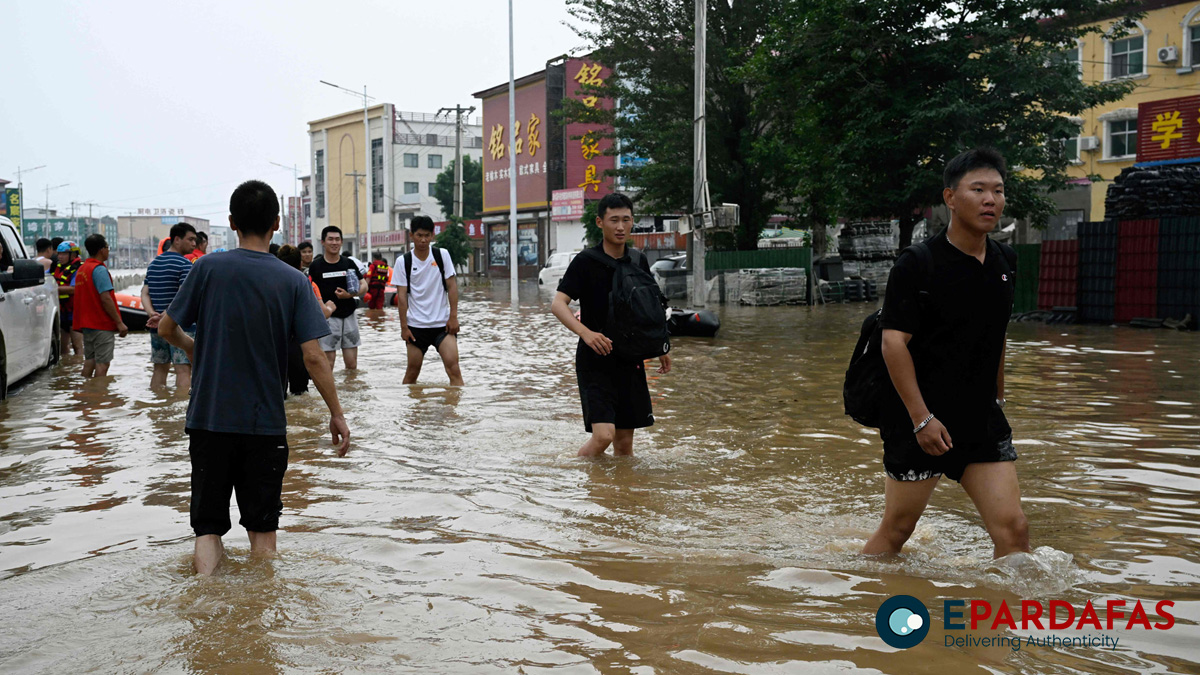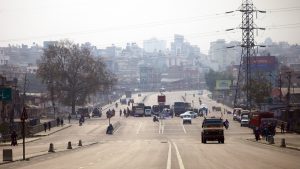
Outcry Grows as Towns Sacrificed to Save Beijing from Severe Flooding
Days of torrential rain in Beijing led to a contentious decision to divert floodwaters away from the capital, prompting outcry and anguish as neighboring towns were deliberately flooded to serve as a “moat” for Beijing’s protection.
Hebei Province, bordering Beijing, opened flood gates and spillways in low-lying flood control zones to avert overflow in the capital and the nearby metropolis, Tianjin. Hebei’s Communist Party leader, Ni Yuefeng, authorized the activation of flood storage and diversion areas to ease pressure on Beijing’s flood control.
While Beijing remained relatively unscathed, the adjacent city of Zhuozhou in Hebei bore the brunt of the diverted waters, compounding its existing flooding woes caused by a breached levee and an overflowing river. The city’s streets and neighborhoods were submerged in up to 23 feet of water, leaving homes and businesses destroyed.
The floods have resulted in nearly a million evacuations in Hebei and surrounding villages near Beijing, leading to disruptions in power supply, internet, and mobile connections. Heart-wrenching appeals for help locating missing individuals have flooded social media platforms.
While diverting floodwaters to less populated areas is not uncommon globally, the crisis in Zhuozhou has sparked significant anger due to slow initial response and a lack of sufficient warning for residents. Many survivors expressed frustration over potential compensation for their losses.
In other parts of the world, such as the Morganza Floodway in central Louisiana, similar measures are employed during emergencies to mitigate destruction and protect highly populated regions. However, the plight of Zhuozhou residents has ignited broader discussions on flood management and the need for more robust disaster preparedness to safeguard lives and livelihoods.





![Chaos Erupts in HoR; Physical Altercations Among MPs, Dhanraj Misbehaves with Oli [Photos]](https://english.pardafas.com/wp-content/uploads/2024/05/defd3-300x169.jpg)









Comments